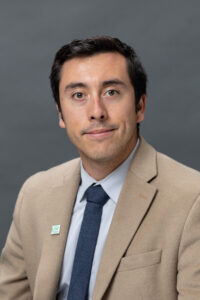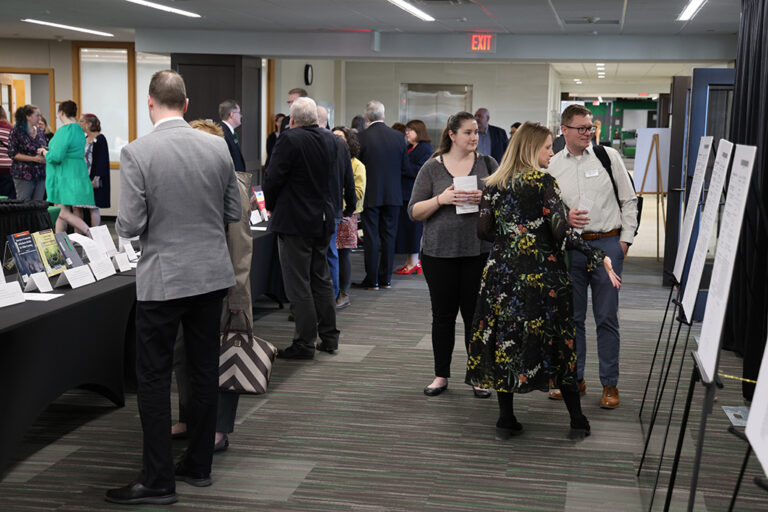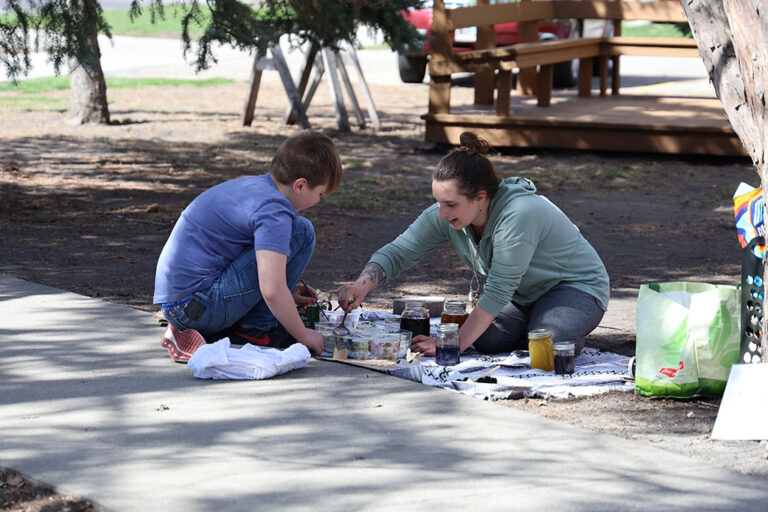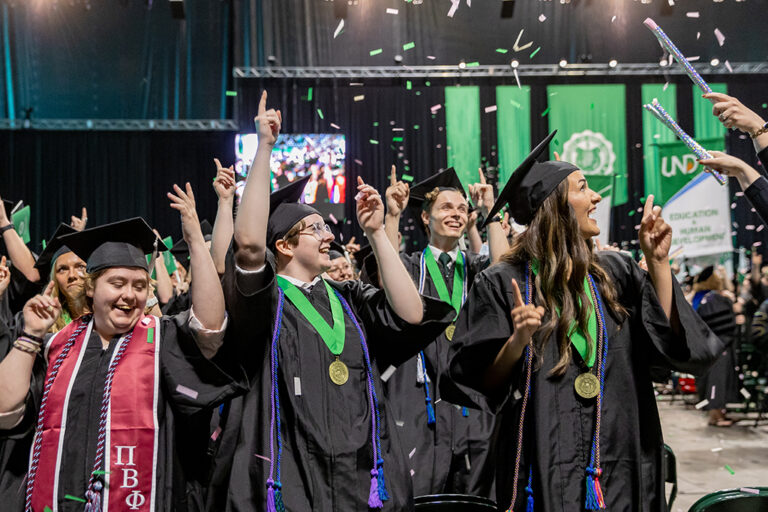From Germany to Grand Forks: UND grad travels 4,500 miles to attend commencement
With her doctorate in Educational Practice & Leadership from UND, Alissa Carter earns her sixth academic degree

One UND graduate embarked on a longer commute than most to attend her commencement ceremony.
Alissa Carter, who graduated with a Doctor of Education in Educational Practice & Leadership, traveled all the way from Munich, Germany, to attend winter commencement ceremonies last month. As the program is offered exclusively online, attending commencement was her first visit to Grand Forks.
Despite commenting that Grand Forks is “very cold,” Carter appreciates the warmth of the campus community.
“One of the things that I really liked was the amount of kindness this program bestowed,” she said. “Everybody here was exceptionally kind.”
Carter searched worldwide for doctorate programs before choosing UND, due to the program’s flexibility and alignment with her academic interests.
“It was perfect, exactly what I needed,” Carter said. “I had been looking for a program that could meet all my needs. Specifically, one that offers a doctorate, but at the same time, would be flexible. That was ideal with this.”
Earning a doctorate is just her latest step in a lifelong journey of learning.
Carter has earned bachelor’s degrees in both theoretical mathematics and theology, master’s degrees in divinity and world religion, educational leadership and a Master of Business Administration. She added that the ability to continue her education in the United States factored into her decision to attend UND.
“All of my other degrees are from the U.S., and when you’re an expat like me, every time you travel, you have to get all of your degrees, qualifications and certificates re-attested in that country,” she said. “If I had to go to five or six different countries for different degrees, it would be too much of a hassle.”
Journey to UND
Originally from Texas, Carter left the U.S. at the age of 21 and began working on gender equity initiatives within education throughout the Middle East, residing in Saudi Arabia, Bahrain, Qatar and the United Arab Emirates. She then became a professor of mathematics and computer science at several universities in the aforementioned countries, albeit taking a slightly unconventional path.
“I became a professor without having a doctorate, which is a little weird,” she said. “I had all the credentials and practice, and everybody had seen what I’d done, so they went ahead and hired me. But I was the only one there without a doctorate.”
Carter said she decided to enroll in UND’s doctoral program during the pandemic, due to the added free time she had with not physically being in a classroom setting. She added that distance learning mandated by the pandemic helped identify students with learning disabilities needing individualized attention, providing her with valuable case studies.
“COVID took all of the kids who may have been able to cope without needing special assistance in a normal classroom, and it highlighted them,” she said. “Suddenly, they had no support — they were doing it all on their own. I was able to take different cases that I was working on and discuss them with my professors. It was like having a very informed colleague helping me out, and then I became that support to my school.”
Carter also said the program introduced her to topics and theories with which she previously was unfamiliar, including the No Child Left Behind Act and the Individuals with Disabilities Education Act. She said such a comprehensive curriculum will benefit her in an international work environment.
“What I liked about it (the program), and the way that it served some of my academic needs and interests, is the fact that it had a lot of theory,” she said. “It was still a very practical program — I could do things and immediately apply them. However, given that I’m not in the U.S., I don’t have the same set of laws, requirements or parameters that people in the U.S. face. I appreciate that the program was flexible enough to allow me to explore those theories in depth, so I could take those laws or formats and apply them within my own cultural context.”
Future plans and advice
Carter plans to use her newest degree to diagnose students with different learning disabilities — a specialty she says is facing a shortage of qualified professionals in Germany.
“There aren’t a lot of diagnosticians,” she said. “The current wait time is between six and nine months to get any kind of diagnosis for students. That’s very difficult for a lot of families, so I hope to go out and help serve that need within the community.”
Carter unequivocally recommends the program for students wishing to continue their education in the field.
“If you’re contemplating pursuing a doctorate, UND should be at the top of your list,” she said. “The exceptional support from the faculty, and the University as a whole, significantly contributed to my professional development. My time here has not only expanded my skill set but also opened doors to opportunities I hadn’t imagined.
“The global network you’ll build and the profound understanding of education you’ll acquire are invaluable. The journey requires dedication, but the rewards are truly transformative.”



